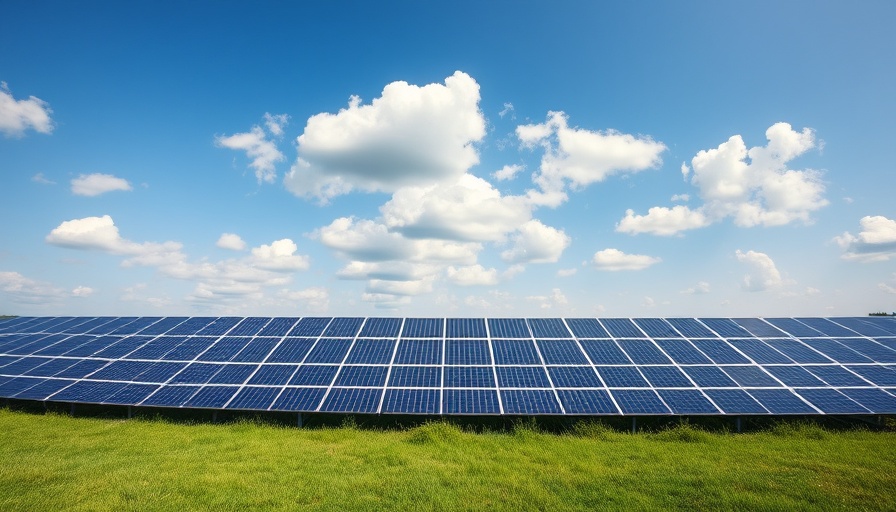
Why Solar Energy Storage is Essential for Modern Households
In an era where sustainable energy is becoming ever more critical, households equipped with solar panels have a unique opportunity: capturing and utilizing the sun's energy. However, many homeowners miss out on the full potential of their solar installations. On average, up to 80% of the energy generated by solar panels is not used efficiently, often due to timing mismatches in electricity consumption. This is where smart energy storage solutions, like home batteries and solar water heaters, come into play.
Transitioning From Selling Back to Saving Energy
The traditional model of selling excess energy back to the grid is becoming increasingly less sustainable for consumers. As of January 2027, the government's saldering policy will end, leading to diminished compensation for energy fed back into the grid. Consumers will benefit more from storing solar energy for personal use rather than relying on return tariffs. Investing in energy storage systems allows homeowners to harness their generated energy, ensuring a degree of energy independence.
The Home Battery: Your Energy Bank
A home battery is particularly beneficial for homeowners who consume more electricity in the evenings and at night than during the day. By storing the energy produced by solar panels during sunny hours, a home battery enables you to use that energy for evening power needs such as lighting, cooking, or charging electric vehicles. With typical capacities ranging from 5 to 15 kWh, these systems cover a substantial portion of nighttime energy requirements. Many models can even be synced with dynamic electricity tariffs, allowing homeowners to charge the battery when rates are low and use it during peak pricing hours.
The Solar Water Heater: A Streamlined Heating Solution
Another efficient way to maximize solar energy use in the home is through a solar water heater, or zonnestroomboiler. This apparatus automatically converts excess solar energy into thermal energy to heat water for household use. As soon as there is a surplus of energy, the solar water heater takes over, conserving your generated electricity for when it's needed most, like for warm showers in the evening or the next morning. Moreover, it operates solely on electricity, utilizing your solar energy without additional costs.
Choosing Between Solutions: Can You Combine Them?
While both home batteries and solar water heaters serve the purpose of maximizing the use of solar energy, they cater to different needs. A home battery stores and releases electricity when required, while a solar heater focuses on generating hot water. Homeowners can indeed opt for both systems, achieving a comprehensive approach to energy sustainability. This dual solution not only addresses electricity use but also reduces gas consumption for heating.
The Financial Upside of Going Solar
Investing in energy storage systems represents not merely a path toward energy independence but also a sound financial decision. Both home batteries and solar water heaters have the potential to offer significant cost savings over time by lowering electricity bills and the dependence on non-renewable sources. Solar water heaters, starting around €1,629, represent a relatively affordable option, particularly for homes already utilizing solar panels. These investments can play a critical role in contributing to a cleaner environment while also supporting efficient resource management.
Final Thoughts on Solar Energy Utilization
As sustainable technologies continue to advance, it becomes imperative for consumers to keep up with innovations and make informed decisions regarding their energy supply systems. Home batteries and solar water heaters are vital tools in transforming how we consume energy. Therefore, recognizing the value in effectively storing solar energy allows participants in this clean energy revolution to reduce their carbon footprint while increasing their financial freedom.
By exploring these options, you can better leverage your solar energy production and save for later. Awareness is key — stay informed, invested, and ready for a brighter, sustainable future.
 Rij toevoegen
Rij toevoegen






Write A Comment